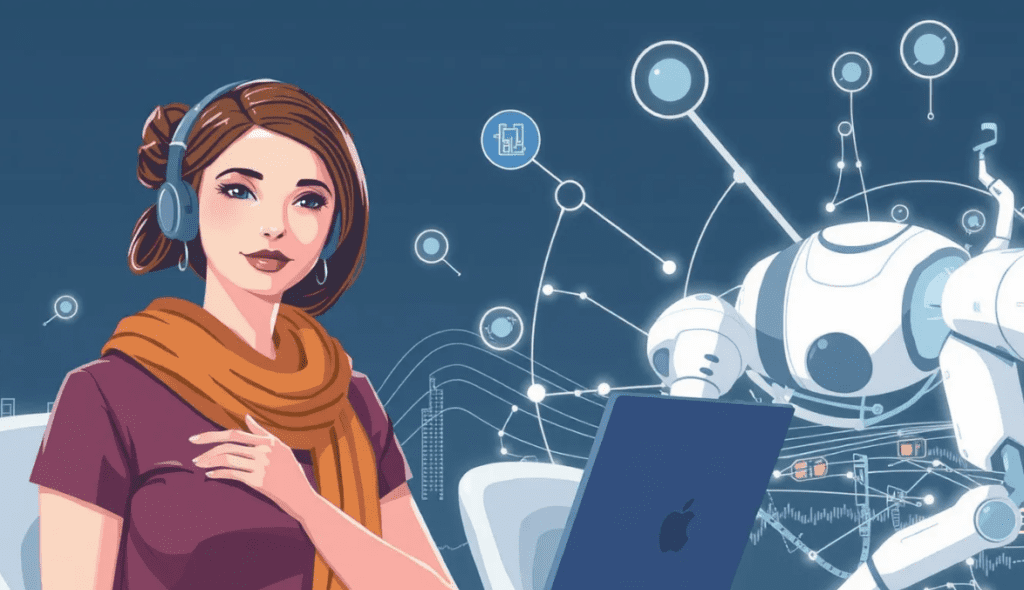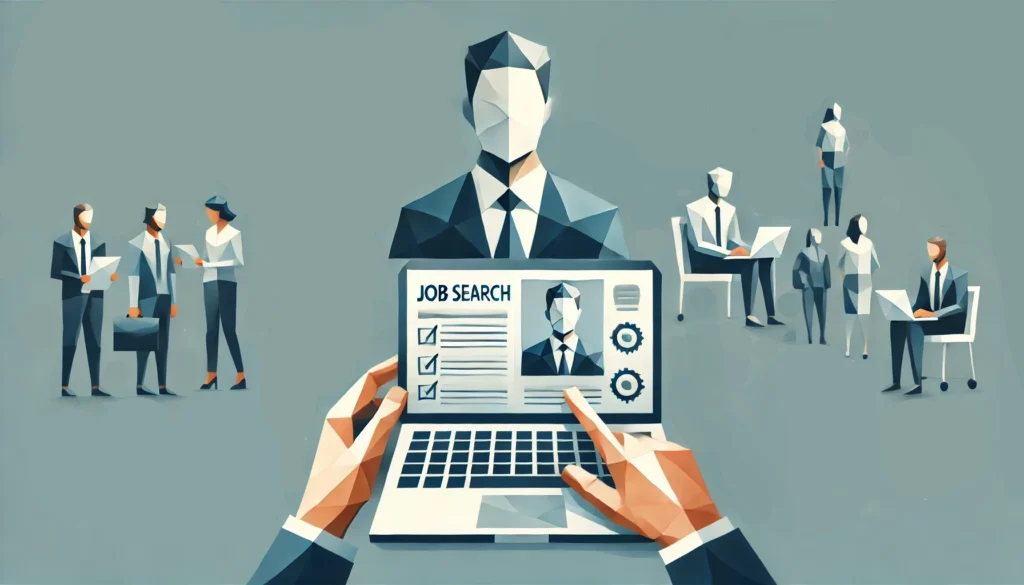
Women are breaking barriers in the transformative field of AI. They are now taking on roles as leaders, innovators and developers. Women are redefining what it means to innovate in tech.
This shift isn’t just an important step for equality, it’s essential for creating inclusive AI that benefits everyone. Diverse perspectives are crucial in avoiding biased algorithms and ensuring AI is designed for a global audience.
Let’s explore how women are shaping the future of AI and leading a tech revolution that’s only just beginning.
Challenging Gender Stereotypes in Tech
For decades, the tech industry has been stereotyped as a “boys’ club.” Women, when they did enter, often found themselves facing challenges like exclusion, fewer opportunities for advancement, and a lack of mentorship.
But these stereotypes are beginning to crack. Initiatives promoting gender diversity have increased the visibility of women in STEM fields, encouraging more women to pursue careers in artificial intelligence.
Programs like Girls Who Code and AI4All are equipping young women with the skills to thrive in tech, showing that success isn’t bound by gender.
The more women who enter this field, the more they create pathways for others. It’s a cycle of empowerment that’s reshaping the industry.
Female Innovators Making Waves in AI
The rise of female innovators in AI is impossible to ignore. Women like Fei-Fei Li, a pioneer in computer vision, and Timnit Gebru, an influential researcher in AI ethics, are driving critical discussions and innovations in the field.
Fei-Fei Li’s contributions to deep learning and her role in developing ImageNet revolutionized machine learning. She’s not just a leader in AI, but also a champion of diversity in tech.
Meanwhile, Timnit Gebru’s work has spotlighted the racial and gender biases in AI systems, prompting necessary conversations around ethical AI development.

Their leadership inspires a new generation of women who see AI as not just a technical challenge but a field where they can truly make a difference.
Overcoming Barriers: From Education to the Workplace
While progress is being made, the journey isn’t without obstacles. Women still face hurdles in accessing education and resources in AI. The gender gap in AI begins as early as school, with girls often discouraged from pursuing math and computer science.
In higher education, the numbers remain lopsided. According to a 2020 World Economic Forum report, only 22% of AI professionals are women. In the workplace, the disparity is even starker. Women often find themselves in lower-level positions, and fewer women hold leadership roles in tech companies.
However, the tides are shifting. Organizations are recognizing the importance of diverse teams, and companies like Google and IBM are actively working to close this gap.
With increasing access to mentorship programs and inclusive hiring practices, more women are stepping into leadership roles in AI.
Why Diversity Matters in AI Development
AI is changing the world at a breakneck pace. But without diversity, it risks amplifying biases. When AI is developed by homogenous groups, it can lead to algorithms that reflect only a narrow slice of society’s needs and experiences.
For instance, facial recognition technology has been criticized for failing to accurately recognize non-white faces, leading to biased policing in some cases. This issue arises when AI training data lacks diversity, and the algorithms are tested primarily on certain demographic groups.
Women, particularly women of color, bring crucial perspectives to AI that help ensure it serves everyone fairly. Their involvement leads to more robust and fair systems, better suited for a global audience.
AI systems should be built by teams as diverse as the populations they’re meant to serve.
Empowering Women Through AI Education
Education plays a critical role in closing the gender gap in AI. But it’s not just about providing women with technical skills—it’s about creating a supportive environment where they feel empowered to lead.

Universities and online platforms are expanding their offerings to make AI more accessible. Free resources like Coursera’s AI courses, and initiatives such as Women in AI, are leveling the playing field. These programs aim to provide women with the skills and confidence to pursue high-level AI careers.
Further, industry leaders are investing in female-focused programs, scholarships, and hackathons to foster an inclusive tech community.
By equipping women with the knowledge and tools they need to succeed, we’re not just preparing them for jobs—we’re preparing them to lead.
Building Support Networks and Communities
One of the most powerful tools for women in AI is community. From mentorship programs to women-led AI organizations, these networks provide the guidance and encouragement necessary to thrive in a male-dominated industry.
Support networks like Women in Machine Learning (WiML) and Women in Data Science (WiDS) have created spaces for women to share their experiences, learn from one another, and collaborate on innovative projects. These communities are fostering a sense of belonging that was long missing in tech.
Being able to turn to a mentor or a peer who’s navigated similar challenges makes a significant difference in career development. It’s about more than just technical knowledge—it’s about feeling empowered and supported.
Women lifting each other up is a critical part of breaking down the barriers in AI.
Creating a More Inclusive AI Future
The future of AI is bright, and women are at the forefront of this tech revolution. Their contributions are reshaping the landscape, pushing for more ethical, inclusive, and effective AI systems.
But there’s still much work to be done. While the number of women entering AI is growing, real parity is still a distant goal. Closing the gender gap will require systemic changes in how we educate, hire, and promote women in tech.
Yet, with every step forward, the dream of a more diverse, equitable tech industry becomes more of a reality.
The next generation of female AI leaders will undoubtedly bring fresh perspectives and innovative solutions to the table—creating a future that benefits us all.

The Role of AI in Addressing Gender Inequality
Artificial Intelligence itself has the power to play a pivotal role in closing the gender gap—not just within its own industry but across sectors. AI can be a tool for empowering women by analyzing gender bias, promoting equal opportunities, and developing tools for women to thrive.
For example, AI can help companies identify pay gaps by analyzing compensation data and spotting patterns of inequality. It can also aid in developing tools like bias-detection algorithms in hiring processes, ensuring women are evaluated fairly and equitably for roles.
As women continue to lead in AI, they bring with them the unique understanding of the gendered challenges many face, driving innovations that address these issues head-on.
Mentorship as a Catalyst for Growth
Mentorship plays a critical role in the rise of women in AI. For many women, entering such a male-dominated industry can feel isolating. But having a mentor can change the game entirely.
Female leaders in AI are increasingly reaching back to mentor younger women and offer guidance through the complex terrain of tech careers. These mentorship relationships aren’t just about sharing knowledge—they’re about sharing confidence and resilience.
Mentors help women navigate challenges, find their voice in meetings, and identify opportunities for growth. This sense of belonging and shared experience empowers women to overcome obstacles and thrive.
Mentorship creates a ripple effect. The more women who succeed, the more they will mentor others, growing the presence of women in AI exponentially.
The Influence of Women on AI Ethics
AI is often described as a “black box” technology—its inner workings are complex, and the decision-making process isn’t always transparent. This has led to growing concerns over ethical issues like bias, discrimination, and privacy violations.
Women have been instrumental in bringing ethical AI discussions to the forefront. Researchers like Joy Buolamwini and Meredith Broussard have highlighted the dangers of biased AI systems, from racial misidentification in facial recognition tech to flawed healthcare algorithms.
Women leading the charge in AI ethics are ensuring that AI development includes discussions around fairness, accountability, and transparency—topics that weren’t always prioritized in the past.
Without their input, the ethical challenges of AI might have continued unchecked.
Women in AI Startups: Changing the Narrative
Another powerful way women are making strides in AI is through entrepreneurship. Female founders are breaking into the AI startup space, creating cutting-edge solutions while also challenging the tech industry’s status quo.
Women like Rana el Kaliouby, CEO of Affectiva, are leading startups focused on emotion AI, revolutionizing the way machines understand human emotions. Through entrepreneurship, women are showing that they not only belong in AI—they’re capable of leading the charge and defining the future.
These AI-driven startups are building solutions to real-world problems with an emphasis on inclusivity and social good. Female-led startups have a unique opportunity to reshape the AI ecosystem and create companies that are inherently more diverse and thoughtful in their development.
Why Representation in AI Leadership Matters
Leadership is where the biggest gaps remain, but it’s also where the most significant changes can happen. Representation matters in AI, particularly in decision-making roles.
When women are part of the leadership conversation, they influence product design, strategy, and hiring practices. They bring an essential perspective that impacts everything from algorithm fairness to how a company engages with its users.
Having more women in leadership positions also changes the dynamic for aspiring female AI professionals. It gives them someone to look up to, someone who has carved a path they can follow. Leadership is more than just a title—it’s about paving the way for future generations.
Government and Corporate Initiatives Supporting Women in AI
The growing awareness of the gender gap in AI has spurred governments and corporations to take action. Countries around the world are introducing policies and funding programs designed to encourage more women to enter and thrive in tech fields, particularly AI.
In the U.S., for instance, initiatives like the National AI Research Institutes program offer grants to support diverse AI research teams, with a focus on promoting gender diversity. In the European Union, the Horizon Europe program funds projects that aim to bridge gender disparities in technology.
Corporations, too, are stepping up. Tech giants like Microsoft and Google have launched internal programs aimed at supporting women in AI. These initiatives focus on creating mentorship opportunities, offering scholarships for advanced AI studies, and fostering an inclusive workplace where women can thrive and lead.
The Importance of Early Exposure to AI for Young Girls
To truly close the gender gap in AI, the journey must start early—long before young women are entering the workforce. Early exposure to AI concepts and technology can be transformative for girls, giving them the confidence and skills they need to pursue careers in AI later on.
Programs like Girls Who Code and AI4All are crucial in this regard. They introduce middle and high school girls to coding, AI, and other tech skills in a supportive and inclusive environment. By demystifying these subjects and showing girls that they can excel, these programs help ignite interest in AI.
Further, having role models in AI—whether in the classroom, in the media, or through outreach programs—can have a significant impact on how young girls see their potential in the field.
The earlier girls feel welcome in tech spaces, the more likely they are to envision a future in AI.
The Global Impact of Women in AI
The influence of women in AI isn’t limited to any one country or region. Around the world, women are making strides and proving that AI is a field for everyone. From India’s booming AI startup scene to Africa’s growing AI research networks, women are stepping up as leaders in their communities and on the global stage.
In Latin America, initiatives like AI LATAM are empowering women to take part in AI research and development. Meanwhile, in countries like Kenya and Nigeria, women are pioneering efforts to use AI for social good—developing solutions that address local challenges, such as healthcare access and agriculture.
This global movement demonstrates that the impact of women in AI is truly borderless. Their contributions aren’t just changing AI, they’re changing lives.
How Women in AI Are Shaping the Future of Work
The future of work is intertwined with AI, and women are at the forefront of defining what that future will look like. As AI continues to automate tasks and reshape industries, it’s vital that the people building these systems understand the social and economic impact of their work.
Women in AI are leading the conversation on responsible automation—ensuring that AI systems are designed with fairness, inclusivity, and human dignity in mind. This approach isn’t just about creating better technology; it’s about creating a better society.
Their work in fields like natural language processing (NLP) and machine learning is helping develop systems that make work more efficient without leaving people behind.
By taking a thoughtful, human-centered approach to AI, women are ensuring that the future of work is one that benefits everyone.
Final Thoughts: The Road Ahead for Women in AI
The journey to bridging the gender gap in AI is far from over. While incredible progress has been made, there’s still much work to be done. Breaking down systemic barriers, promoting diversity in education, and continuing to support women in leadership roles are all critical steps in this process.
The future of AI will be shaped by the minds of diverse, innovative individuals—and women are already proving that they belong at the forefront of this revolution. With more women entering the field, challenging stereotypes, and pushing for ethical advancements, the gender gap in AI is slowly but surely narrowing.
And that, in turn, promises a more inclusive, fair, and innovative AI landscape for all of us.
Resources to Support Women in AI
For women looking to enter or advance in the field of AI, a wealth of resources exists to provide support, education, and community. Here are some key platforms, organizations, and initiatives focused on empowering women in AI:
1. Women in Machine Learning (WiML)
WiML is a community-driven initiative that supports and encourages women in machine learning research. They offer workshops, mentoring, and opportunities for collaboration, helping women gain visibility in the field.
Website: WiML
2. AI4All
AI4All focuses on increasing diversity and inclusion in AI by providing summer programs, educational initiatives, and mentorships for underrepresented groups, including women. Their goal is to empower young women with AI skills and prepare them for careers in tech.
Website: AI4All
3. Women in AI (WAI)
WAI is a global organization that fosters female leadership and participation in AI through education, research, and events. They offer scholarships, mentorship programs, and a network for women looking to make an impact in the world of AI.
Website: Women in AI
4. Coursera AI Courses
Coursera offers a wide range of free and paid AI courses from top universities and institutions. These courses cover everything from deep learning to AI ethics, providing valuable skills for anyone looking to break into the field.
Website: Coursera AI Courses
5. Women Who Code
While not AI-specific, Women Who Code provides a strong community and resources for women in all areas of tech, including AI. They offer workshops, networking opportunities, and career development support.
Website: Women Who Code



